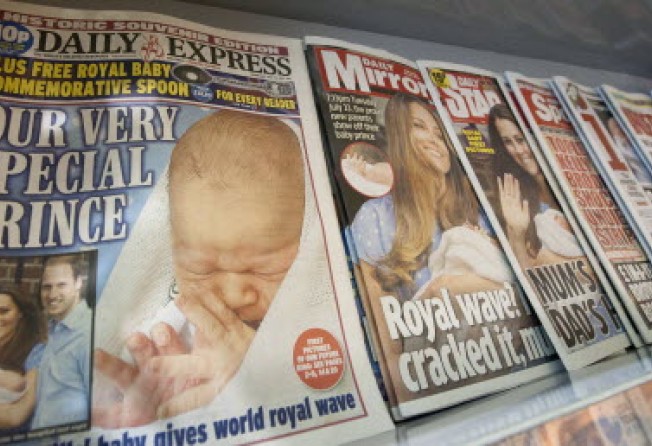BBC loses the plot over royal birth
Kevin Rafferty says once-great broadcaster no longer lives in real world

Rarely, maybe never, in the ages of media commentary has so much empty hot air been expended by so many people over something so insignificant.
I am referring to the birth of the British royal baby and specifically to the BBC World television coverage of it, which was wall to wall with gush and coo and mush, morning to night, for hours and days before the baby emerged, and then, rejuvenated, for days after the birth of George Alexander Louis.
It was a disgrace. Lord (Chris) Patten as the chairman of the BBC Trust should call in Lord (Tony) Hall, the director general, show him a world map and point to the insignificance of the UK in the global scheme of things. He should urge him not to squander the global reputation of BBC World with parochial British matters.
"The eyes of the world are on London," trilled one newsreader. What total garbage: tens of millions of people in Brazil are more interested in the visit of Pope Francis; Japanese are wondering how Shinzo Abe will cope with his new power as prime minister with a parliamentary majority; Chinese are worried about their precarious economy; millions in the Middle East are trying to stay out of harm's way; and billions of people are preoccupied with their daily survival in turbulent economic times.
"There is only one story," claimed another newsreader, ignoring the fact that The Guardian had another political story on its front page; and that the Financial Times thought the admission by GlaxoSmithKline that some of its executives may have breached China's laws was of much more moment than the birth of a baby who in 50 years may get the lead role in a 300-year-old fancy dress pageant.
It was not the first time that the BBC has lost its sense of reality. The wedding of Prince William and Catherine Middleton and the death and funeral of Margaret Thatcher were other recent occasions when the corporation forgot the rest of the world. But on those occasions there was something to see, good music and beautiful people in the first, and the opportunity to watch the crocodile tears of Thatcher's opponents, who at least got the chance to see her off.
This time, there was nothing to see, just empty stages outside St Mary's Hospital and outside Buckingham Palace filled with hundreds of hungry newshounds speculating on when the baby would make an appearance, what sex it would be, whether it would look more like father or mother and what it would be called. They were kept waiting for four hours after the birth for the announcement, so that the royal couple could practise their bonding with the newborn.
At least BBC reporter Simon McCoy had the grace to admit after seven hours of the farce that there would be "plenty more to come from here of course, none of it news". He paused, before adding, "… because that'll come from Buckingham Palace. But that won't stop us".
Yes, the British royal family has a big following, not only in the UK but also in the former colony of the US. Experts on branding say that the British monarchy is worth £53 billion (HK$630 billion), and the birth of the new prince may add another billion or so to the British economy this year.
Perhaps by broadcasting endlessly on BBC World, the domestic BBC was able to push some of the costs of coverage onto the global channel - shame on both.
The BBC is the last still sparkling jewel of a vanished empire, but it is losing its lustre.
It would have been obvious but interesting to compare and contrast the lives and prospects of the new prince to another baby born on the same day in India or Ecuador or Ethiopia or the West Bank - obvious but it did not occur to the BBC to tear its cameras away from the empty stages in London.
Kevin Rafferty is a professor at the Institute for Academic Initiatives, Osaka University